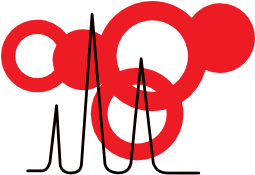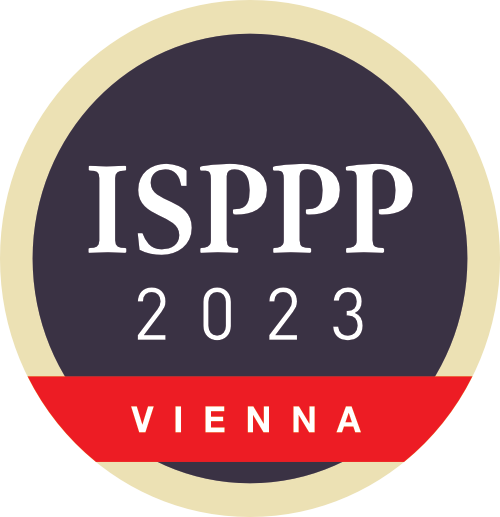Conference Chair
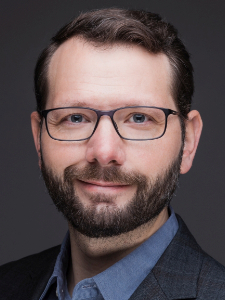
Nico Lingg
Institute of Bioprocess Science and Engineering, University of Natural Resources and Life Sciences (BOKU), Vienna, Austria
Austrian Centre of Industrial Biotechnology, Austria
Nico Lingg is senior scientist at the Austrian Centre of Industrial Biotechnology and at the Institute of Bioprocess Science and Engineering (BOKU). In the past, he has worked at the Bioprocessing Technology Institute, Singapore for two years. His research focuses on the design of platform processes in biochemical engineering. The main applications are the production and purification of biomacromolecules as biopharmaceuticals. This includes peptides, proteins and bionanoparticles from various sources such as microbial fermentation, cell culture or human plasma.
Scientific Committee Members
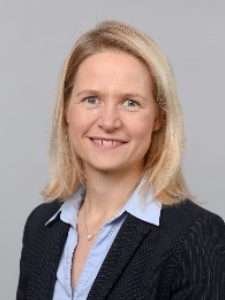
Sonja Berensmeier
Bioseparation Engineering Group Technical University of Munich, Germany
Sonja Berensmeier leads the Bioseparation Engineering Group at the Technical University of Munich since 2009, after several years as a group leader at the Karlsruhe Institute of Technology in the area of biofunctional surfaces. She meets the challenge for applied integration of molecular biology, biotechnology, particle technology, and process engineering. The focus of the current research is process intensification by adsorptive and extractive separation methods. In the field of adsorbents she is specialized in magnetic and conductive particles.
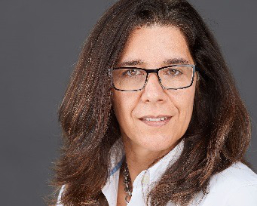
Cristina Dias-Cabral
Biopharmaceuticals and Biomaterials Development Group, CICS-UBI – Health Sciences Research Center, University of Beira Interior, Covilhã, Portugal
Cristina Dias-Cabral is Assistant Professor at the Department of Chemistry, University of Beira Interior in Covilhã, Portugal and an integrated member of the CICS-UBI – Health Sciences Research Center at the same University. She is currently working in the field of downstream processing and characterization of large biomolecules. Fundamental aspects of adsorption of different types of biomolecules on different types of chromatographic supports with application in optimization and scale-up of chromatographic units is one of her special focus. Since 2010, date when she established a Flow Microcalorimetry laboratory at CICS-UBI, she has been characterizing thermodynamically the adsorption mechanisms of several biomolecules on different chromatographic supports used in downstream processing in order to understand their mechanism of interaction with the support. Work done in collaboration with different national and international research groups
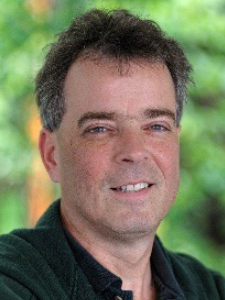
Michel Eppink
Director Downstream Processing, Byondis
Wageningen University and Research
Wageningen University and Research
Michel received his MSc. in Biology/Chemistry in 1993 from the University of Utrecht and his PhD in 1999 from the Wageningen University and Research Centre with background in structure/function relationships of proteins. Currently, Michel Eppink is Senior Director Downstream Processing at Byondis BV developing purification/formulation processes for biopharmaceutical proteins. Next to that Michel is also Special Professor at the Department of Bioprocess Engineering at Wageningen University and Research Centre heading a group of PhD candidates in the research of new purification/analytical techniques for proteins/lipids/carbohydrates from different eukaryotic organisms (e.g. mammalian cell lines, macroalgae, microalgae, yeast).
Milton Hearn
School of Chemistry, Monash University, Australia
Professor Milton Hearn and his team at the Centre for Green Chemistry have developed a new process to extract natural resveratrol from grape waste, rather than manufacturing it from a petro-chemical base. Resveratrol is a natural phenol found in the skin of red grapes and in an increasing number of processed foods, pharmaceuticals and cosmetics. It is sought for its potential anti-ageing and health promoting effects.
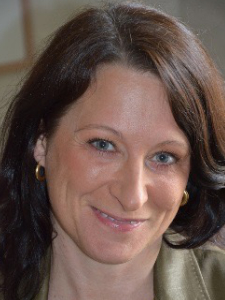
Sophia Hober
School of Engineering Sciences in Chemistry, Biotechnology and Health, AlbaNova University Center, KTH – Royal Institute of Technology, Stockholm, Sweden
Sophia Hober is Professor of Molecular Biotechnology at KTH, Stockholm, Sweden. The focus of her research group is development of predictable and robust systems for protein purification and detection by protein design and various selection methodologies. Her key scientific achievements include improvements of the alkaline tolerance of protein A and protein G for industrial purification of IgG. Also, a novel ligand for affinity purification of IgG in a calcium dependent way enabling mild elution has been developed. Further, small bispecific protein domains, with ability to strongly and selectively bind to two different proteins have been developed. These domains have been designed for use in protein purification as well as for cancer theranostics.
Prof. Hober is the author of more than 120 full‑length scientific papers and has filed more than 20 international patent applications. She is cofounder of 4 start-up companies and member of several Board of Directors. She is also elected member of the Royal Swedish Academy of Engineering Sciences.
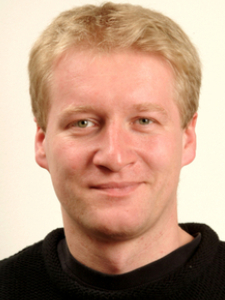
Jürgen Hubbuch
Professor at Karlsruhe Institute of Technology, Germany
Jürgen Hubbuch is professor for biomolecular separation engineering at Karlsruhe Institute of Technology. His chair focuses on all aspects of modern downstream processing: protein purification, formulation as well as analytics in the biopharmaceutical industry. The area of research ranges from assessing structural parameters of proteins on a molecular level, transport and surface interaction phenomena of proteins, purification and characterization of bio-nanoparticles to industrial process development.
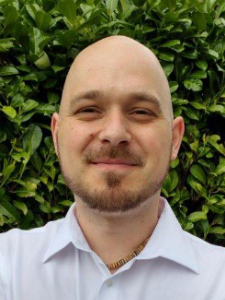
Marcel Kwiatkowski
Functional Proteo-Metabolomics
Institute of Biochemistry, University of Innsbruck, Austria
Marcel Kwiatkowski leads the Functional Proteo-Metabolomics Group and the High-Resolution Mass Spectrometry Lab at the Institute of Biochemistry at the University of Innsbruck. His research focus lies in the development of novel hyphenated mass spectrometric techniques for combinatorial time-resolved analysis of the proteo-metabolome and posttranslational modifications and single-cell proteo-metabolomics to decipher molecular mechanisms at the interface of intermediary metabolism and modified protein species in context of systems biology, epigenetics and tuberous sclerosis complex (TSC) disease..
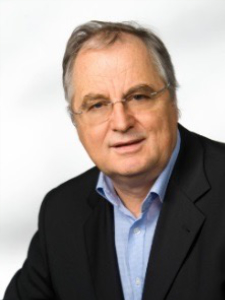
Alois Jungbauer
Department of Biotechnology, University of Natural Resources and Life Sciences Vienna
Alois Jungbauer serves since 1986 as a professor at the Department of Biotechnology at the University of Natural Resources and Life Sciences, Vienna. He teaches Protein Technology and Downstream Processing and Bioprocess Engineering. He also acts as area head and Dep. Director of Research in the Austrian Centre of Industrial Biotechnology. He is currently working in the field of bioengineering of proteins, plasmids and viruses with special focus on expression, downstream processing and characterization of large biomolecules.
As a proliferate researcher he has more than 300 publications on recombinant protein production and bioseparation, 15 patents and 12 book contributions and recently a monograph entitled “Protein Chromatography , Process Development and Scale Up”. He is executive editor and co-founder of Biotechnology Journal, and member of editorial boards from numerous journals in the area of biochemical engineering.
Egbert Müller
Tosoh Bioscience GmbH
Egbert Müller is the Technical Director of Tosoh Bioscience GmbH since 2001. He owns a Ph.D. in Theoretical Chemistry and a Habilitation in Bioseparations. His main research focus is on the preparation and surface modification of chromatographic support materials. He is a lecturer for “Industrial Biotechnology” at the university of Darmstadt.
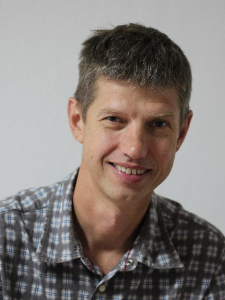
Aleš Podgornik
Faculty of Chemistry and Chemical Technology, University of Ljubljana, Slovenia
Aleš Podgornik, Ph.D., is by profession chemical engineer and has worked for 20 years in the field of biochemical engineering, especially in the downstream processing of macromolecules. He worked as CSO and R&D head for companies BIA and BIA Separations for more than a decade, currently he is a professor of chemical engineering on Faculty of Chemistry and Chemical Technology, University of Ljubljana, as well as Head of bioprocessing technologies in COBIK. His research interest is biochromatography and bioprocessing including continuous processes.
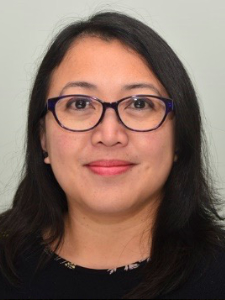
Andrea Rayat
University College London, UK
Andrea Rayat is Associate Professor in Bioseparations and Downstream Processing at University College London (UCL). She holds Biochemical and Chemical Engineering degrees from UCL (PhD), TU Delft (MS – cum laude), and UPLB (BS). She has also attended enterprise courses/MBA electives at the London Business School. Prior to her current post, she has had roles outside of academia as a product engineer, product manager and consultant in the biopharma industry. She came back to UCL in 2014 as Senior Enterprise Fellow and in 2018 she was appointed as an academic staff. She now leads a research group that studies and develops scale-down methods to investigate primary recovery and membrane processes in the manufacture of biotech products including mAbs, enzymes, vaccines and, gene and cell therapies. Her work interfaces with technology translation and knowledge exchange having previously secured an EPSRC Impact Acceleration award and Innovate UK’s Knowledge Transfer Partnership. The latter won for their team an Institution of Chemical Engineers (IChemE) global award in 2020. Currently, she is PI in a BBSRC project where she studies novel production of lentiviral vector for gene therapy. At UCL, Andrea is also the head of the department teaching committee and is director of the BEng/MEng Biochemical Engineering programs.
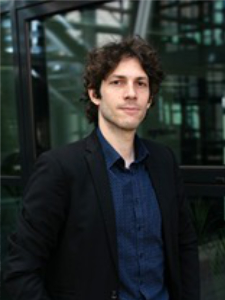
Sebastian Schwaminger
Otto Loewi Research Center, Medical University of Graz, Austria
Sebastian Schwaminger leads the Nanomaterials for Drug Delivery at the Otto Loewi Research Center at Medical University of Graz since 2022, after several years as a postdoc at Massachusetts Institute of Technology and Technical University of Munich in the area of magnetic nanomaterials. He adapts nanomaterials for challenges in particle technology, process engineering, biotechnology and medical technology. The focus of the current research is bio-nanomaterials and their use of interactions with biomolecules in drug delivery and medical technology. He is specialized in magnetic nanoparticles and polymers.
